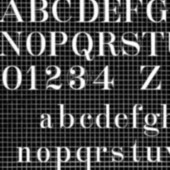The Human Rights Review Tribunal says a former Massey University extramural student society president suffered humiliation and significant injury to her feelings after a private letter addressed to her was leaked to a student magazine.
The woman was also subjected to sustained harassment from the respondent in this case, the society’s former vice president, who during a long running dispute sent her an average of 150 emails a week and made phone calls to her, forcing her to change her phone number twice in a year.
The respondent’s behaviour towards her in early 2013 became so worrying that she sought legal advice and arranged for a trespass notice to be issued against him. She also attempted unsuccessfully to remove him from his position as vice-president.
The woman described the respondent’s behaviour towards her as ‘extreme harassment’ and that his emails and phone calls often used profanities and contained threats. The harassment included an attempt by him to ‘confiscate’ her personal belongings in her university office.
In March 2013, the woman received a letter from a member of the society’s executive, purportedly on behalf of the executive. It was headed ‘Written Warning’ and contained extensive and serious allegations about her performance as president.
Shortly after she received the letter, she was interviewed by two members of the university magazine and shown a copy of the letter. One of the journalists told her it had been given to them by the respondent. The magazine later quoted excerpts from the letter in an article published in print and online in April 2013.
The woman said the impact of information in the three page letter being made public was humiliating and irrevocably damaged her reputation for hard work and ethics. Following the story’s publication, she received a deluge of emails from extramural students, many of them angry from what they assumed to be factual information in the story. She said she felt degraded by the flood of hate mail she received from strangers.
A doctor told the Tribunal that the woman suffered from stress and anxiety, including headaches and panic attacks, for which he had prescribed anxiety medication.
In her complaint to us, the woman named the then vice president and the university magazine as respondents.
We concluded that by disclosing the letter to the student magazine, the respondent had breached principle 11 of the Privacy Act. We then referred the case to the Director of Human Rights Proceedings who in turn brought proceedings before the Tribunal. The Tribunal ordered the respondent to pay the woman $18,000 and ordered him to undertake training in the Privacy Act.
Image credit: "Lettering for draftsmen, engineers and students; a practical system of freehand lettering for working drawings" (1917) Internet Archive Book Images Creative Commons Licence
IPP11 - disclosure,
Human Rights Review Tribunal,
complaints
Back

